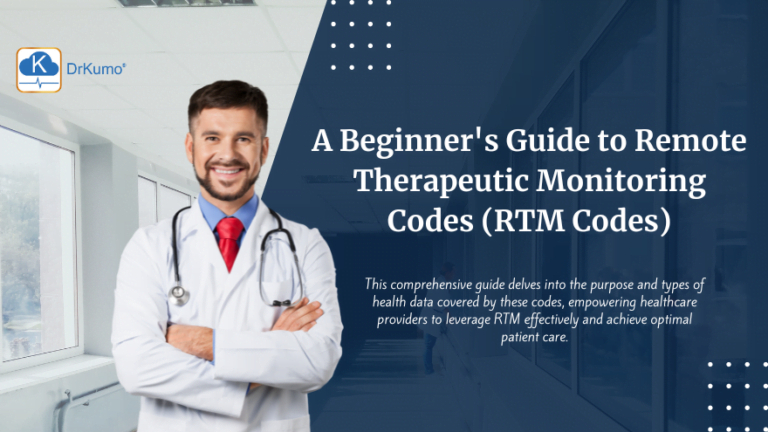With age, the risk of developing chronic health conditions tends to rise, which may potentially affect quality of life. These conditions can result in frequent medical interventions and increased requirements for long-term care. According to the National Council on Aging, chronic diseases such as heart disease, diabetes, arthritis, and hypertension affect nearly 93% of older adults in the United States.
Among these individuals, approximately 80% live with two or more chronic conditions. Despite the challenges these diseases pose, many seniors can continue to live independently with the right strategies in place. This article explores evidence-based approaches to chronic disease management that help seniors maintain their autonomy and quality of life while aging in place.
Understanding the Impact of Chronic Disease on Senior Independence
Chronic illnesses often result in physical limitations, fatigue, pain, and cognitive decline, all of which can threaten a senior’s ability to live independently. Daily tasks such as bathing, dressing, managing medications, or preparing meals may become difficult. Without effective chronic disease management, these conditions may contribute to frequent hospitalizations and transitions to assisted living.
However, research has consistently shown that proactive disease management, combined with a strong support system, lifestyle adjustments, and the integration of tools like Remote Patient Monitoring (RPM), can significantly reduce these risks. According to a study published in the Journal of Personalized Medicine, RPM has been shown to improve clinical outcomes and reduce hospital readmission rates, especially among patients with chronic conditions by enabling continuous monitoring and early intervention. Maintaining independence is not just about physical ability; it also includes emotional well-being, self-efficacy, and the ability to make personal decisions.
Creating Personalized and Comprehensive Chronic Care Plans for Older Adults
A personalized care plan is the foundation of effective chronic disease management. These plans are tailored to individual health status, goals, and preferences, and are created collaboratively with healthcare professionals, caregivers, and the individual.
Key components of a strong chronic care plan include:
- Detailed medication management schedules
- Clear guidance on nutrition and exercise for healthy living for seniors
- Preventive care strategies such as vaccinations and screenings
- Regular follow-ups and adjustments based on changing needs
When seniors are actively involved in their care planning, they are more likely to adhere to treatment protocols, recognize warning signs early, and feel empowered in managing their health.
Optimizing Medication Management for Seniors
Polypharmacy, commonly defined as the regular use of five or more prescription medications, is highly prevalent among older adults. Regular use of five or more prescription drugs is common among American adults in their 60s and 70s, with about a third doing so, as reported by the U.S. Centers for Disease Control and Prevention. This increases the risk of drug interactions, side effects, and medication errors.
Effective strategies for medication management for older adults include:
- Using pill organizers or blister packs
- Setting alarms or using smartphone apps for reminders
- Conducting routine medication reviews with pharmacists or primary care providers
- Understanding each medication’s purpose and potential side effects
Caregivers and healthcare professionals should also be aware of deprescribing opportunities where unnecessary medications can be safely discontinued to improve elderly chronic care.
Leveraging Technology for Senior Disease Monitoring and Support
Technology offers advanced tools to support chronic disease management, especially for seniors wishing to remain in their homes and age in place.
Remote Patient Monitoring (RPM) for Seniors
DrKumo’s RPM services include a variety of devices, such as blood pressure cuffs, glucose monitors, and weight scales, which can transmit data directly to healthcare providers. This enables early intervention, helps prevent complications, and aids in preventing hospitalizations for seniors.
Wearables and Mobile Apps for Health Management
Fitness trackers, fall detectors, and medication reminders help seniors monitor their own health and stay engaged in their care. These tools enhance self-management for older adults.
Telehealth Services for Accessible Care
Virtual appointments have become a mainstay in senior healthcare, allowing for greater accessibility, reduced travel, and more frequent check-ins with specialists. Telehealth for seniors improves continuity of care.
These technologies can provide peace of mind for both seniors and their families, enhancing safety and continuity of care.
Promoting Healthy Lifestyle Changes for Chronic Illness Management
Lifestyle plays a pivotal role in managing chronic conditions and slowing disease progression. Even modest changes can have profound effects on health outcomes.
Nutrition for Senior Health
Dietary patterns such as the DASH (Dietary Approaches to Stop Hypertension) and Mediterranean diets are widely recognized for their efficacy in lowering blood pressure and improving overall cardiovascular health. Furthermore, emerging research suggests these diets, particularly when combined or with strong adherence, can also support cognitive function and reduce the risk of cognitive decline in older adults, as highlighted by leading health organizations. Seniors should aim for nutrient-dense foods and reduce processed foods high in sodium and sugar to support their chronic illness management.
Physical Activity for Older Adults
Regular movement, such as walking, tai chi, or water aerobics, can improve mobility, strength, balance, and mental clarity. Exercise also reduces the risk of falls, which is a leading cause of injury among older adults. This contributes significantly to seniors maintaining independence.
Stress Reduction Techniques
Chronic stress can worsen numerous health conditions, including high blood pressure, anxiety disorders, and chronic pain. Practices like mindfulness meditation, deep breathing exercises, and hobbies can help seniors manage anxiety and maintain emotional balance, crucial for living well with illness.
Building a Circle of Support: Family, Community, and Professionals
Social support is a crucial aspect of chronic disease management for seniors. Isolation and loneliness, which affect nearly one-third of older adults, are associated with poorer health outcomes.
Family Involvement in Senior Care
Loved ones can help with transportation, meal preparation, and emotional encouragement. Regular communication helps seniors feel less alone and more secure, providing vital support for elderly with chronic illness.
Peer Support Groups
Connecting with others facing similar health challenges provides an opportunity to share experiences, learn coping strategies, and build resilience.
Professional Services for Home Care
Home health aides, occupational therapists, and chronic care coordinators can fill gaps in care, provide in-home services, and support goal-setting and follow-through, enabling aging in place.
Encouraging Self-Management and Patient Empowerment in Seniors
It is essential to help seniors take an active role in their health. Self-management education programs, such as those offered by the CDC and Stanford University, teach older adults how to handle symptoms, set achievable goals, and communicate effectively with providers.
Tools that support self-management for older adults include:
- Health journals or digital health monitoring
- Educational workshops on disease-specific topics
- Goal-setting exercises to build confidence and motivation
When seniors are empowered, they are better equipped to manage their chronic conditions and make informed choices about their care.
Ensuring Continuity of Care Across Providers for Seniors
Fragmented care can lead to unnecessary complications and repeat hospitalizations. It is critical to ensure that all healthcare providers primary care, specialists, and home care agencies are coordinated.
Strategies for improving continuity include:
- Using patient portals to centralize medical records
- Assigning a primary care “medical home” to manage overall care
- Conducting regular interdisciplinary care team meetings
- Engaging in transitional care planning after hospital discharge to prevent hospitalizations for seniors.
A well-coordinated system reduces medical errors, increases efficiency, and enhances the patient experience for elderly chronic care.
Empowering Seniors: How DrKumo Digital Health Solutions Foster Independence in Chronic Disease Management
Chronic diseases can significantly impact a senior’s independence, making daily tasks and self-care challenging. However, advancements in digital health solutions, particularly those offered by DrKumo, are revolutionizing chronic disease management for older adults.
By leveraging cutting-edge Remote Patient Monitoring (RPM) technology and a patient-centric approach, DrKumo empowers seniors to proactively manage their health from the comfort of their homes, fostering greater autonomy and a higher quality of life.
DrKumo’s platform provides a comprehensive suite of tools that align perfectly with the needs of seniors striving for independence. Their system enables continuous, real-time monitoring of vital signs and other health metrics through user-friendly devices, allowing for early detection of potential issues and timely intervention by healthcare providers.
This proactive approach has the potential to prevent complications and can assist in reducing hospitalizations, also providing seniors with the reassurance of consistent health monitoring. Furthermore, DrKumo’s integration of telehealth services primarily centered around RPM and personalized insights fosters enhanced communication and engagement between patients and their care teams, ensuring tailored support and empowering seniors to actively participate in their chronic disease management journey.
Key Takeaways
Chronic illness does not have to mean the loss of independence. With comprehensive chronic disease management strategies, technology integration (like RPM), lifestyle modifications, and strong support networks, seniors can manage their health while continuing to live with dignity and purpose.
Investing in these approaches is beneficial not only for individuals but also for building sustainable healthcare systems as the population ages. By shifting the focus from reactive treatment to proactive management, we empower seniors to live well, even in the face of chronic illness.
Discover how DrKumo Digital Health Solutions can support a more independent and healthier life for seniors. Learn more about our RPM and chronic care management tools, and contact us today!
Disclaimer: This article, “Living Well with Illness: Chronic Disease Management Strategies Helping Seniors Maintain Independence,” offers general information only and isn’t medical advice. Always consult a healthcare professional for diagnosis, treatment, or any health-related decisions.








